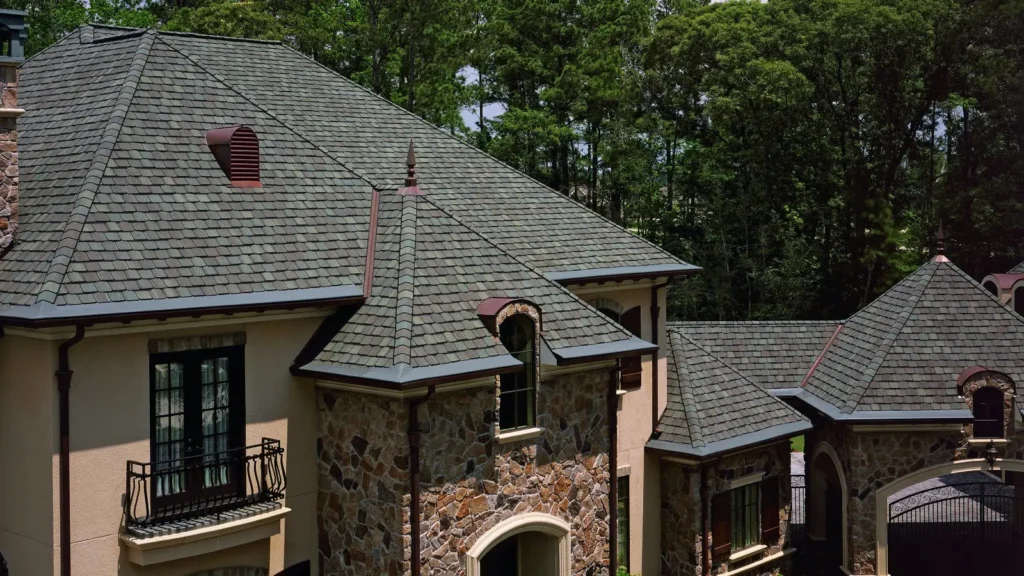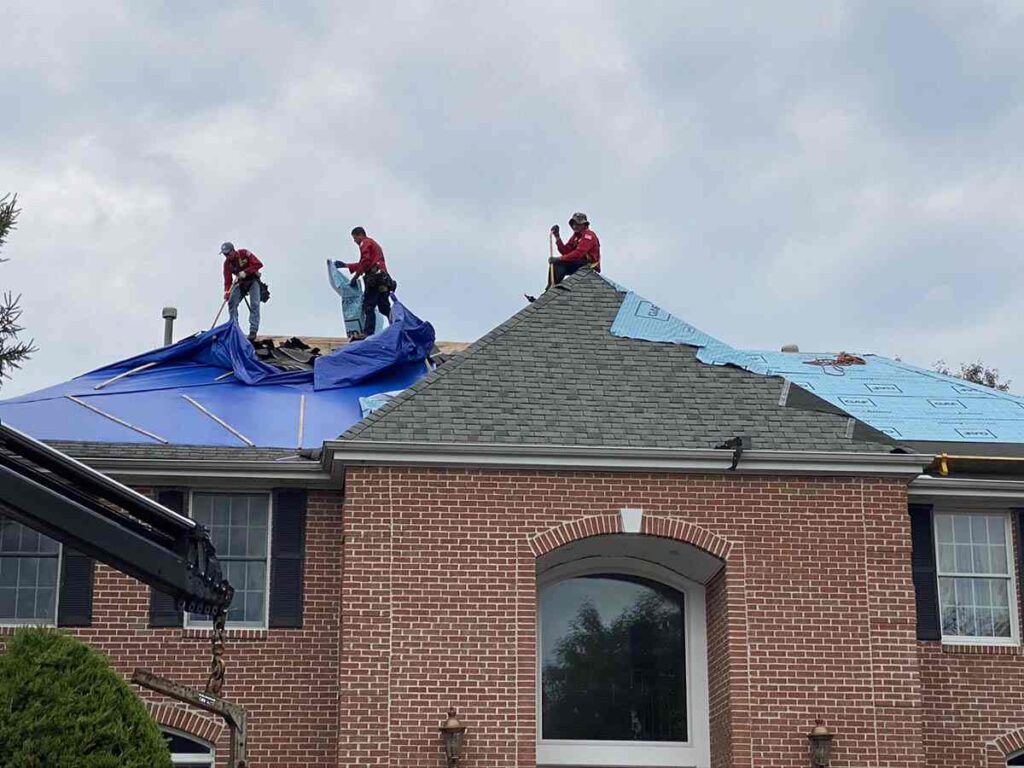The Limits of Roof Warranties for Long Island Homeowners
Over 35 Years as a Roofer in Long Island
When installing or replacing a roof on your Long Island home, many homeowners focus on the warranty provided by the roofing manufacturer or contractor. While a good warranty may seem like a safety net in case something goes wrong, it’s important to understand that roof warranties have limitations. More often than not, these warranties won’t cover issues that arise due to poor workmanship. This is why hiring a responsible, experienced contractor who provides quality work is far more critical than relying on a warranty to cover the cost of fixing mistakes.
In this blog, we’ll explore the limits of roof warranties, why you should prioritize skilled workmanship over a warranty, and how to choose a reputable roofing contractor for your Long Island home.
What Are Roof Warranties?

Roof warranties are agreements offered by manufacturers and roofing contractors that cover certain types of damage or defects in the materials or installation of your roof. These warranties aim to protect homeowners from costly repairs or replacements if their roof develops issues prematurely. However, not all warranties are created equal, and many have strict conditions and limitations that homeowners need to be aware of.
Types of Roof Warranties
There are two main types of warranties homeowners encounter when installing a new roof:
-
Manufacturer’s Warranty: This warranty covers defects in the roofing materials themselves. If the shingles or other materials used in your roofing system fail due to a manufacturing defect, the manufacturer may cover the cost of replacement. However, this warranty generally does not cover installation errors or damages caused by improper installation.
-
Workmanship Warranty: Provided by the roofing contractor, a workmanship warranty covers any issues related to the installation of the roof. This could include problems such as leaks, flashing issues, or poor sealing. Workmanship warranties vary greatly in terms of coverage and length, depending on the contractor.
Understanding the Limits of Roof Warranties
While warranties can offer peace of mind, they are not a catch-all solution for every roofing issue you might encounter. It’s crucial to understand the common limitations of these warranties before relying on them to cover any roofing repairs or replacements.
Manufacturer’s Warranties Often Exclude Installation Errors
A manufacturer’s warranty is primarily focused on defects in the roofing materials. If the shingles, underlayment, or other materials are found to be defective, the manufacturer may replace those materials. However, most manufacturer’s warranties exclude problems related to improper installation. If your contractor makes a mistake during the installation process, such as improper flashing or poor shingle alignment, the manufacturer will not cover the cost to fix it.
For Long Island homeowners, where coastal weather conditions and storms can exacerbate roofing problems, relying on a manufacturer’s warranty alone can leave you vulnerable to costly repairs if the installation wasn’t done correctly.
Workmanship Warranties Vary Widely
Unlike manufacturer’s warranties, workmanship warranties cover installation-related issues. However, the length and coverage of workmanship warranties can vary significantly depending on the contractor you hire. Some contractors may offer a warranty that only lasts for a few years, while others provide more extensive coverage.
Even when you have a workmanship warranty, some contractors may attempt to deny responsibility for certain problems, claiming that the issue was caused by factors outside of their control, such as weather conditions or homeowner neglect. It’s important to thoroughly understand the terms of any workmanship warranty before relying on it to cover potential installation issues.
Exclusions and Prorated Coverage
Many roof warranties come with exclusions that limit the scope of coverage. For example, warranties may not cover damage caused by natural disasters like hurricanes, high winds, or hailstorms, which are common on Long Island. Additionally, some warranties become prorated over time, meaning the amount of coverage decreases as the roof ages. This can leave you responsible for a significant portion of the repair or replacement costs if an issue arises many years after the roof was installed.
Labor Costs Are Often Not Included
Another limitation of many manufacturer’s warranties is that they may not cover labor costs associated with replacing defective materials. Even if the manufacturer agrees to replace faulty shingles or other materials, you may still be responsible for the cost of hiring a contractor to install the replacement materials. In contrast, a reliable contractor may offer a workmanship warranty that covers both the labor and materials needed to address any installation-related issues.
A Good Roofing Contractor
is More Important than
a Good Roofing Warranty
While warranties offer some protection, they are not a substitute for good workmanship. In fact, a well-installed roof from a reputable contractor is likely to last longer and have fewer issues than a roof installed by an inexperienced or careless contractor, even if the latter comes with an extensive warranty. Here’s why focusing on hiring the right contractor is more important than relying on a warranty.
Good Workmanship Reduces the Likelihood of Issues

The majority of roofing problems stem from poor installation, not material defects. Common issues like leaks, improper flashing, and poorly aligned shingles occur when contractors fail to follow best practices during installation. A skilled and experienced roofer will take the time to ensure that each component of your roof is installed correctly, reducing the likelihood of future problems and minimizing the need to use a warranty.
In Long Island, where roofs are subjected to high winds, heavy rains, and occasional snowfall, having a roof that is properly installed is crucial. Poor workmanship could lead to early failure, leaving your home vulnerable to water damage and other issues.
Workmanship Warranties Don’t Always Guarantee Quality
Even if a contractor offers a warranty, it doesn’t always mean they will do the job right the first time. Some contractors may cut corners during installation, relying on their warranty to cover any problems that arise later. However, dealing with warranty claims can be a frustrating process. It often involves back-and-forth communication, delays, and disputes over whether the issue is actually covered by the warranty.
Hiring a responsible contractor with a strong track record of quality workmanship reduces the need for warranty claims and ensures your roof will perform as expected.
Skilled Contractors Follow Manufacturer Guidelines
To maintain the validity of a manufacturer’s warranty, the roofing materials must be installed according to the manufacturer’s specifications. A reputable contractor will be familiar with these guidelines and will follow them to ensure your warranty remains intact. This includes proper installation of underlayment, flashing, and shingles, as well as adhering to any ventilation and insulation requirements specified by the manufacturer.
By hiring a contractor who follows the correct installation procedures, you can avoid voiding your manufacturer’s warranty due to improper installation.
How to Choose a
Responsible Roofing Contractor
for Your Long Island Home
Choosing the right roofing contractor is critical to the success of your roofing project. Here are some tips to help you find a reputable contractor who will provide excellent workmanship and minimize the need for warranty claims.
Look for a Contractor with Experience and Credentials
When selecting a roofing contractor, look for one with extensive experience in installing roofs in the Long Island area. A contractor with local experience will understand the unique challenges posed by Long Island’s climate and will be able to recommend the best roofing materials and installation methods for your home.
Additionally, check that the contractor is licensed and insured. Roofing work can be dangerous, and hiring an uninsured contractor could leave you liable for any accidents that occur on your property.
Check Reviews and References
Before hiring a contractor, take the time to read reviews from previous customers and ask the contractor for references. A responsible contractor will have a portfolio of satisfied clients who can speak to the quality of their work. Look for reviews that mention the contractor’s attention to detail, professionalism, and ability to complete projects on time and within budget.
Ask About Workmanship Warranties
While the focus should be on hiring a contractor with a reputation for quality work, it’s still important to ask about the workmanship warranty they offer. A reputable contractor should stand behind their work and offer a warranty that covers any issues related to installation. Make sure to get the terms of the warranty in writing and ask for clarification if anything is unclear.
The Long-Term Benefits
of Working With
a Reliable Long Island Roofing Contractor

Investing in high-quality workmanship from a reputable contractor will pay off in the long run. While roof warranties can offer some protection, the best way to avoid costly repairs and replacements is to ensure the roof is installed correctly in the first place. Here are some long-term benefits of prioritizing workmanship over warranties.
County Roofing has been working on Long Island roofs for over 35 years. We know what it takes to build a roof that stands up to Long Island’s challenging weather conditions. Our team is trained and certified in installing your new roof to the manufacturer’s demanding standards. We’ve proven ourselves to many satisfied customers. And we’ve also proven ourselves to roofing materials companies who will stand behind our workmanship with some of the best coverage in the industry.
Here are just a few of the benefits you can expect from a new County Roofing Systems roof.
Fewer Repair and Maintenance Costs
A roof installed with precision and care is less likely to develop issues over time. This means you’ll spend less money on repairs, maintenance, and warranty claims. Additionally, a well-installed roof will last longer, delaying the need for a costly roof replacement.
Increased Home Value
A roof installed with precision and care is less likely to develop issues over time. This means you’ll spend less money on repairs, maintenance, and warranty claims. Additionally, a well-installed roof will last longer, delaying the need for a costly roof replacement.
Peace of Mind
Hiring County Roofing Systems to install your new roof brings you peace of mind. You don’t You won’t have to worry about unexpected leaks, premature wear, or the hassle of dealing with warranty claims. Instead, you can rest easy knowing your roof is built to last.
People Also Ask...
In over 3 decades of contracting work on Long Island, we’ve worked with many local home equity lenders. Give us a call and let us help you find financing.

